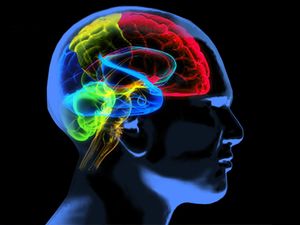The findings indicated that while AF was a statistically significant but weak predictor of dementia overall, it was more strongly linked to dementia in younger patients
A groundbreaking study presented at the ‘EHRA 2025’ scientific congress in Austria has revealed that the presence of atrial fibrillation (AF), a common heart condition, increases the risk of developing dementia, especially among younger adults. The study, which is the largest European population-based analysis on this topic, showed that patients under 70 with AF face a 21% higher risk of dementia, with the risk rising to 36% for those who develop early-onset dementia (diagnosed before age 65).
Atrial fibrillation, which causes irregular heartbeats, affects approximately 2-3% of the general population, with its prevalence increasing with age. However, the study found that the risk of dementia associated with AF was particularly significant in younger adults, diminishing in older populations.
“This is the largest European population-based study evaluating the association between AF and dementia,” said Dr. Julian Rodriguez García from the Electrophysiology and Arrhythmia Department of Bellvitge University Hospital, Barcelona, Spain. “The association between AF and dementia was stronger in patients under 70, with the most pronounced impact seen on early-onset dementia.”
The research, which focused on individuals in Catalonia, Spain, assessed the independent association between AF and dementia over an average follow-up period of 13 years. The study included 2,520,839 participants, of whom 79,820 (3.25%) had a diagnosis of AF at the start of the study.
The findings indicated that while AF was a statistically significant but weak predictor of dementia overall, it was more strongly linked to dementia in younger patients. In patients aged 45-50, those with AF were 3.3 times more likely to develop dementia than those without the condition. However, for individuals aged over 70, no significant association was found between AF and dementia.
Further analysis revealed that for those diagnosed with AF before the age of 70, the risk of developing dementia increased by 21%, with a more pronounced effect on early-onset dementia. For these individuals, the risk of early-onset dementia was heightened by 36%.
“This study highlights a significant and strong link between atrial fibrillation and dementia in younger patients,” the researchers concluded. “Both conditions—AF and dementia—are major health challenges of the 21st century, and understanding their connection is crucial for managing the health of affected individuals.”
The study’s findings suggest that earlier intervention and more proactive management of AF in younger patients may help reduce the risk of developing dementia later in life. As the global population continues to age, understanding the relationship between heart health and cognitive decline will be essential in preventing the rise of dementia cases.
As the study calls for more research into the underlying mechanisms linking AF to dementia, it underscores the importance of monitoring and addressing heart conditions, especially in younger individuals, to mitigate long-term cognitive health risks.














